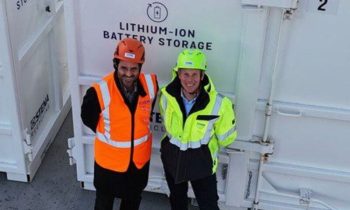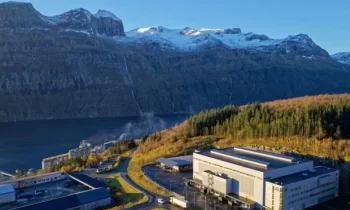The Institute for Energy Technology (IFE) in Norway said on 27 May that it had signed an agreement with Springfields Fuels Limited (SFL) in UK under which SFL will receive 3 tonnes of unused uranium fuel from Norway to produce new fuel. The contract was signed on 21 May between IFE and SFL, a subsidiary of the American company Westinghouse. While IFE and SFL are the contractual partners, the contract specifies that Norwegian Nuclear Decommissioning (NND) will take over IFE’s obligations when IFEs nuclear assets are transferred to NND in the future.
The contract forms part of a clean-up operation after 70 years of nuclear activities in Norway and will significantly reduce the amount of nuclear material left in Norway, which would be classified as waste. “This agreement is an important part of the clean-up after Norway’s nuclear activities and a significant step forward to find a solution for our nuclear material,” said IFE CEO Nils Morten Huseby.

Norway’s two last research reactors in operation in Halden and Kjeller were shut down in 2018 and 2019, ending Norway’s nuclear research programme which began in 1951. In addition to the research reactors, there are several other nuclear facilities that will be decommissioned and a wide range of nuclear waste that must be handled and disposed of in a safe way. The clean-up activities are estimated cost over NOK21 billion ($2.5bn) and will last for at least 20 years.
“For NND, it is important to reduce the amount of radioactive material that we have to take care of in Norway. The fact that this uranium can now be used by SFL will therefore be a right step in reducing our future clean-up costs”, said Nils Bøhmer, Chief Technology Director at NND.
The Norwegian state has assumed responsibility for financing the clean-up arising from Norway’s nuclear research activities. NND was established in 2018 as a government agency under the Ministry of Trade, Industry and Fisheries to be responsible for this activity. IFE’s nuclear facilities and personnel is planned to be transferred to NND in January 2024, provided that the necessary licences and permits are in place.
“This agreement is a small but important step in cleaning up the waste that remains after Norwegian nuclear activities. It is very gratifying that with this we can now reduce the amount of nuclear waste in Norway,” said Minister of Trade and Industry Iselin Nybø. Under the agreement, material that otherwise would have been treated as waste and disposed of in Norway will now be utilised to produce new fuel.
“There are some challenges with storage and deposition of unirradiated uranium over a longer period of time”, explained Peter Bennett, project manager at IFE/NND. “We are talking about a time horizon of over 100,000 years. If the material is to be stored for such a long time, other nuclides with a long half-life will start to form. This makes it more challenging to develop safe and secure deposition solutions. Since the material is un-irradiated and unused, it is in fact a resource that has value for the nuclear power industry. The material is a raw material that can be used to make new nuclear fuel.”
SFL will take the ownership of the fuel when it arrives their plant. Where it will be used as raw material for producing new nuclear fuel, to be used in commercial NPPs. The agreement requires that the material must be used for peaceful purposes only.
Before the transfer of the fuel can take place, approval is needed from the Norwegian Radiation and Nuclear Safety Authority to move the material. In addition, permission from the countries of origin for re-export needs to be obtained through the Ministry of Foreign Affairs. These are time-consuming processes, and IFE does not expect to be able to begin transport until 2022. In total, the export will take place over approximately two years, and will be spread over six shipments.



